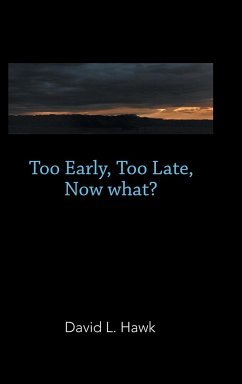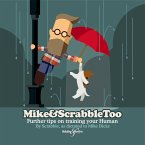Contents presented here are not intended to make humans feel good about themselves, nor their futures. It provides little support to business as usual in relations between humans and nature. Many depict this relation with metaphorical hope as in always seeing glasses as half-full. Others are more pessimistic and see glasses as half-empty. Neither will find comfort herein. The reality outlined herein is closer to a glass as empty, and covered with stains. While harsh, continuance of ever-expanding environmental deterioration promises to be much harsher. One consequence of deterioration is climate change as it emerged in 1977 near the end of a study presented in this book. Climate change was a proposed consequence of the way in which humans lived via ever expanding industrialization to meet growing human needs and exploding human wants. The study began with a focus on approaches to regulating industrialization pollution. Increasing legalistic regulation was then seen as the best means to control expanding deterioration of the environment, if and when the situation might become dire. Tougher laws and stricter governance were presumed to be available to protect the conditions necessary for life. The study was begun in 1975 while based at the Stockholm School of Economics, Institute of International Business. It was funded by corporate and governmental interests. It attracted leaders from the private and public sectors in several countries. Company selections were based on those who owned production facilities in several countries, facilities with similar technology making similar products resulting in similar pollution. In this way we could document pollution flows in order to evaluate differing governmental regulations. Results surprised all involved, including the researchers. The US was presumed to be very effective in environmental pollution regulations. Research results showed the opposite. It was found to rely too much on unknowledgeable lawyers and incomprehensible legalese all based on reductionist analysis in search of cause-effect logic. Significant success was instead found where the role of 2-dimensional paper laws was greatly restricted. Such was replaced by the authority of human self-governance pursuing 3-dimensional innovation with recognition of 4-dimensional limitations. Study results recommended replacing legal order with a negotiated order. This was thought to better track the systemic processes of deterioration, processes the analytic couldn't see. This was seen to have encouraged the needed business as unusual. Results were presented to OECD as part of their discussion of different approaches to managing environmental deterioration. Results were also presented in a dissertation for a PhD in Systems Sciences, Wharton School, University of Pennsylvania. Reviewers were concerned about two items. First was that environmental deterioration may be better understood via deeper analysis, not broader synthesis. Second was that climate change evolving from further environmental deterioration was speculative. It needed to be dropped. In addition, the Wharton dean of the time refused to approve the work. He did not see a relation between environmental deterioration and business, and he believed students needed to concentrate on business as usual before wondering off into the unusual. Since that time relations between man and nature have not improved, nor have relations between men and between men and themselves. We now face the ultimate of Joseph Heller's Catch-22 and Gregory Bateson's Double Bind. Business as usual will end in no business. The essence of the 1979 work was recently tested via posting a question on the Member Community Blog Site of the 120,000 member American Association for the Advancement of Science. The question was: Humans are changing the context for life on our planet to the negative. Does anyone see a source for hope? More than 800 responses were
Hinweis: Dieser Artikel kann nur an eine deutsche Lieferadresse ausgeliefert werden.
Hinweis: Dieser Artikel kann nur an eine deutsche Lieferadresse ausgeliefert werden.








